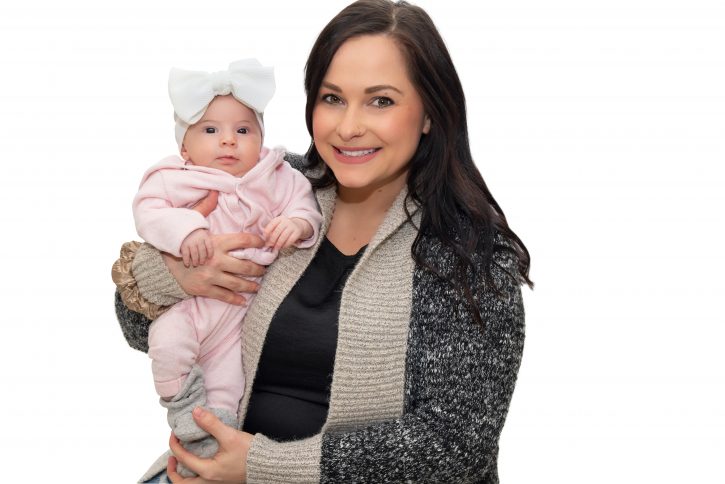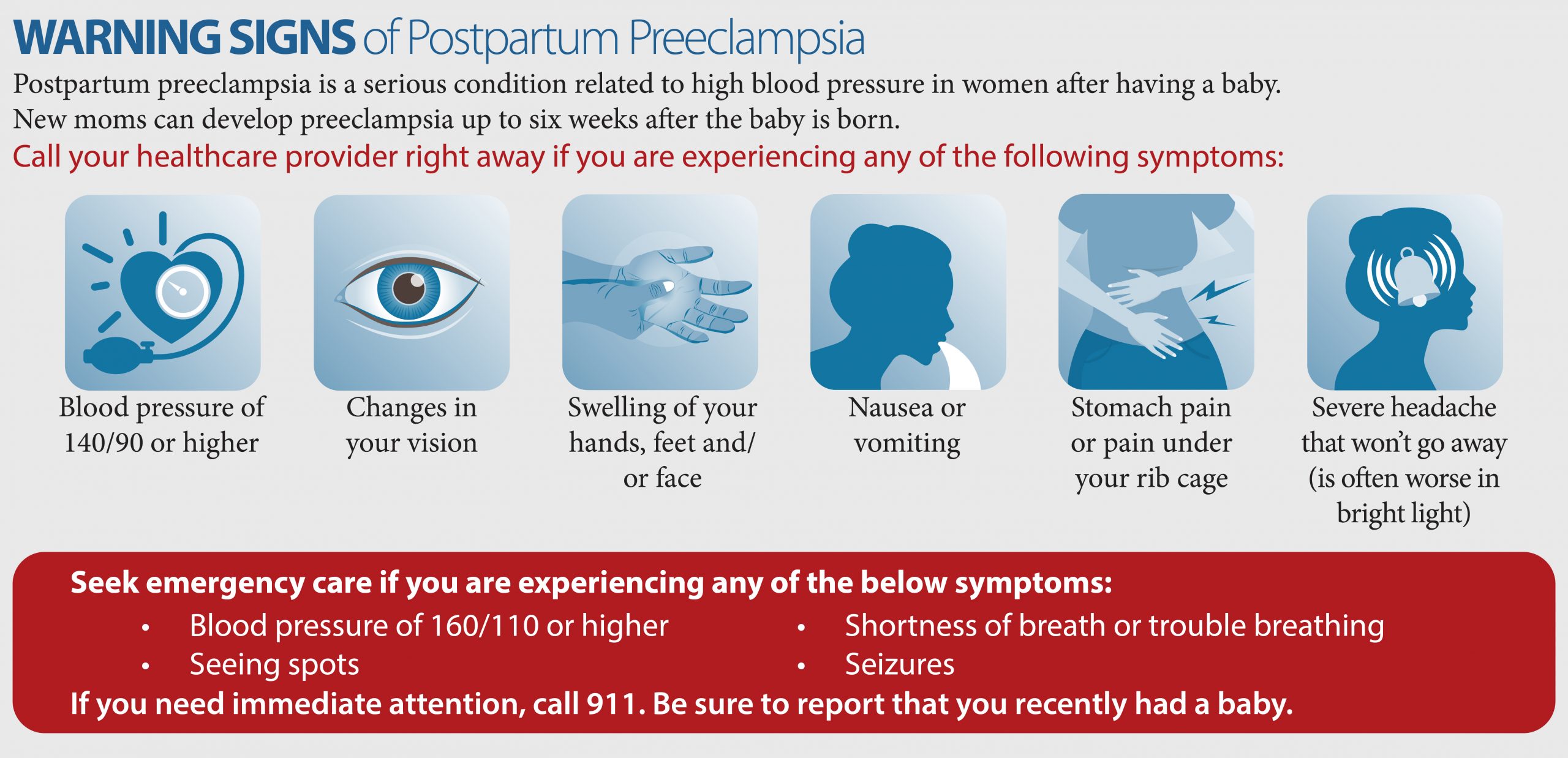
Shannon Russell, 34, wears many different hats – experienced ICU nurse, loving wife and dedicated mother.
So, when she and her husband, Tyler, discovered that their family of three would be growing, Shannon knew she wanted to find a physician who would understand her hectic lifestyle on a more personal level. That’s when she met obstetrician Emily Burnette, DO, of Fairfield Healthcare Professionals Obstetrics & Gynecology.
The two hit it off quickly, and throughout Shannon’s pregnancy, they bonded over the delights and challenges of motherhood. “My daughter, Harper, is five – and Dr. Burnette has two girls herself,” Shannon said. “That made it really easy to open up to her, because I always knew she understood where I was coming from.”
For Dr. Burnette, this personal connection plays an important role in the care she provides. “Knowing my patients helps me tune in to their needs,” she explained. “To me, a clinical relationship doesn’t have to be cold and distant – good relationships are based off of trust and mutual understanding, and a little common ground can go a long way.”
And while Dr. Burnette knows firsthand the uncertainty and worry that can accompany pregnancy, she also knows the overwhelming feelings of love and joy that come along with parenthood. Luckily, Shannon’s maternity experience largely consisted of the latter, but in the days following her daughter’s birth, she was glad to know she had Dr. Burnette by her side.
WELCOMING ELLIS
As her third trimester drew to a close, Shannon left each of her weekly appointments with a clean bill of health and a mounting sense of anticipation. Her due date came and passed uneventfully, and with no evidence of a willing arrival, her care team made the decision to induce labor. On Dec. 3, 2019, it was time for Shannon’s baby to make her grand entrance – ready or not.

Once Fairfield Medical Center’s Maternity Team began the induction process, Shannon’s labor progressed quickly. After several hours of labor and a few quick pushes, Ellis Tyler, a beautiful baby girl, finally entered the world. “And just like that, our family was complete,” Shannon said with a smile. “It was like she was the puzzle piece we never knew we were missing.”
Shannon spent the remainder of the day resting and recovering with the help of FMC’s Maternity Team. The nurses recognized Shannon’s growing fatigue and encouraged her to lean on them for support. “That was so important for me. I never ask for help,” Shannon explained. “But they saw what I needed more clearly than I did, and I trusted them. When I woke up a few hours later, I was ready to be the best mom to my girls, because I was in a better place to take care of myself.”
The concept of slowing down and taking time to rest is often lost to mothers, and even Dr. Burnette – who knows just how difficult it can be to achieve balance between being a caretaker and practicing self-care – finds herself struggling to maintain the advice she gives to her patients. “There’s never really enough time in the day,” she shared. “But I try to remind myself – and my patients – that we cannot pour from an empty cup, and even airlines have you secure your own oxygen mask before assisting others.”
With a renewed and optimistic outlook, the all-clear from their physicians and the prospect of the rest of their lives ahead of them, the Russell family prepared to head home. Unfortunately, they didn’t realize just how short-lived their time away from the hospital would be.
THERE AND BACK AGAIN
In the pre-COVID world we all once knew, the Russells returned home to a whirlwind of excited visitors, an overjoyed big sister and the uninterrupted demands of daily life. Shannon found herself resuming the role of hostess and new mother of two without missing a beat, quickly forgetting the lesson in self-care she received a day earlier. “We walked in the door, and I scooped up my five-year-old without thinking twice. We were so focused on the tasks in front of us that we forgot to slow down and check in with ourselves,” she remembered.
By nightfall, Shannon started to feel uncomfortable. She noticed the swelling first. “I hadn’t had any swelling prior, but out of nowhere, my toes felt like they were going to pop off,” she recalled. She later noticed an unusual twisting pain in her upper abdomen, followed by back pain, chills, cold sweats and a worsening headache. At that point, she began to suspect something was very wrong.
“Thank God for that discharge packet,” Shannon said. “I flipped it open to the section on complications, and there it was: my symptoms listed almost exactly under a heading that read ‘postpartum preeclampsia.’ ”
Preeclampsia, a condition associated with pregnancy, is most commonly characterized by high blood pressure. If left untreated, it can lead to fatal complications, including organ damage, seizure and stroke.
“In the United States, we’ve seen a huge rise in the incidence of preeclampsia in recent years,” Dr. Burnette shared. “Onset after delivery – which can occur up to six weeks after birth – is less common than the typical third trimester presentation. Unfortunately, it’s more likely to be missed or delayed until serious complications arise. That’s why it’s so important that we continue to educate women on the signs and symptoms of these conditions.”
Still unwilling to believe she was experiencing a serious complication, Shannon’s medical background led her to investigate further. “I must have checked my blood pressure 15 times, and every single reading was high,” she admitted. “But even then, I was in denial.”
Despite her reservations, Shannon bit the bullet and picked up the phone: it was time to contact the doctor on-call. To her relief, it was Dr. Burnette’s voice she heard at the other end of the line. “She answered, and I immediately apologized,” Shannon laughed. “It was nearly midnight, and I felt so embarrassed to be calling her.” Dr. Burnette, of course, was quick to reassure her that she should never be sorry for seeking care, no matter the hour.
After a quick discussion, Dr. Burnette urged Shannon to get to FMC’s Emergency Department as soon as possible. For Shannon, that’s when the panic set in. “I just kept thinking, ‘What am I going to do with this tiny newborn? I can’t take her to the emergency room with me in the middle of cold and flu season, but I can’t be away from her either,’” she recalled.
Dr. Burnette quickly met Shannon’s concerns with compassion and understanding: they would adjust the plan. Instead of going to the Emergency Department, Dr. Burnette instructed her patient to go directly to the Maternity Unit – the team would be expecting them. “I cried the whole way to the hospital because I was grateful and sad all at the same time,” Shannon remembered.
AN UNEXPECTED RETURN
When she arrived at FMC for the second time in as many days, the Maternity Team was waiting for her, just as Dr. Burnette promised. “It was the middle of the night when we got there, but they had already thought to have a bassinet ready for Ellis,” Shannon recalled. “That meant so much to me, just to know I could have her near me.”
In the time it took to reach the hospital, Shannon’s condition had worsened. Her blood work revealed that she was already in the early stages of kidney failure, a frequent complication of unmanaged preeclampsia. But, luckily, Shannon’s early recognition of symptoms and Dr. Burnette’s quick action allowed the team to begin administering supportive care almost immediately, staving off any lasting organ damage. “At one point, I was nursing the baby while one nurse checked my vitals and another placed an IV – they were honestly so fantastic and efficient and completely aware of a new mother’s needs,” Shannon shared. “I trusted my doctor, and I trusted my team, and I knew I was exactly where I was supposed to be.”
HOME SWEET HOME
Within two days, Shannon’s preeclampsia resolved, and her condition improved. It was time for the Russell family to head home – for good this time. Before long, Harper settled into her role as “best big sister in the world,” while Ellis effortlessly wrapped Mommy and Daddy tighter and tighter around her little fingers. “They’re perfect together,” Shannon said of her daughters. “I can’t imagine our family any differently.”
Looking back on her experience, Shannon is overwhelmed with gratitude for the compassion she received during what she calls one of the scariest moments of her life. “Dr. Burnette is a blessing to Fairfield Medical Center,” Shannon said, “and the rest of the Maternity Team – I think their souls were meant to be labor and delivery nurses. I will remember them literally for my entire life.”
To learn more, about Maternity services at Fairfield Medical Center, click here.
WARNING SIGNS of Postpartum preeclampsia is a serious disease related to high blood pressures in women after having a baby. New moms can develop preeclampsia up to six weeks after the baby is born.
Call your healthcare provider right away if your are experiencing any of the following symptoms:

